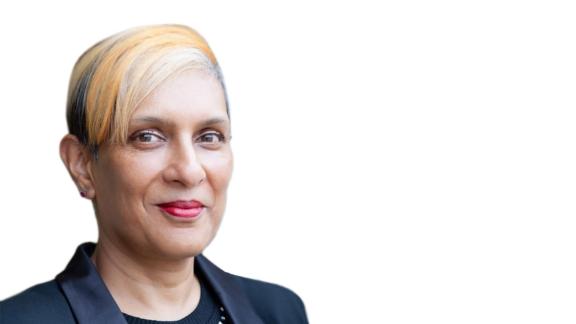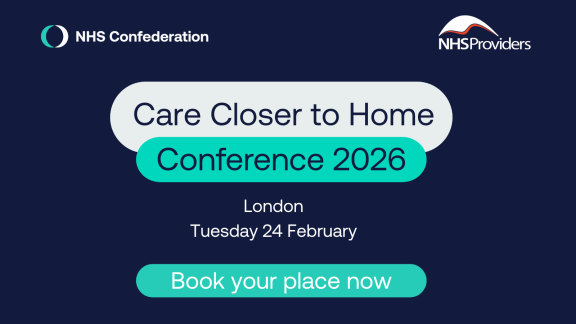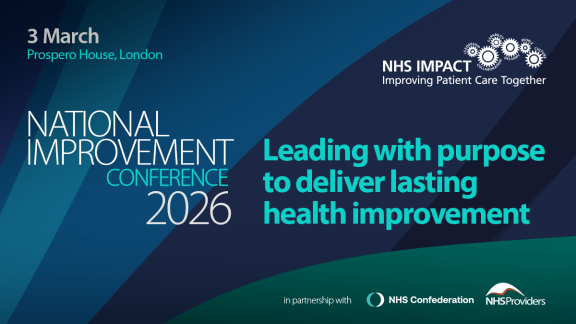If the ICB board culture isn’t right, it simply won’t work

The structures within the system are simply the enablers, not the end result. To collaborate successfully in the interest of patients and citizens, we need to focus on getting an aligned culture with all the board members, whether they are providers, local authority members or non-executives.
Integrated care system (ICS) teams across the country worked hard to get everything ready for this month’s official launch of our integrated care boards (ICBs) and it’s important to start these new organisations in the right way, to give them the best possible chance to work.
I’m not talking about the structures, I’m talking about the heart, ethos and dynamics of how people think and work together to achieve better outcomes for our population. If the board culture isn’t right, then the organisation just won’t work, and that’s why I’m passionate about getting it right.
The structures within the system are almost incidental as they are simply the enablers, not the end result. There is a danger of becoming obsessed about how the structures will work within the new integrated care systems, or what ‘place’ looks like, but ultimately it’s about how we collaborate in the interest of patients and citizens for better health outcomes and healthier lives.
…we need to focus on getting an aligned culture with all the members, whether they are provider members, local authority members or non-executives
We need to think first about what we are here to do, consider who we need on board to make that happen, and then how we develop the right culture to work together to achieve it. Having that real diversity of members on the ICB board, bringing different perspectives from the various sectors, provides us with great potential for new ideas and solutions.
Building a positive culture
But to make that work effectively, and to get the most out of those ideas and solutions, we need to focus on getting an aligned culture with all the members, whether they are provider members, local authority members or non-executives.
In my ICS here in Hampshire and the Isle of Wight, we started out with a programme of transition in place, handing over from our former clinical commissioning group non-executive directors (NEDs) to our new ICB NEDs, looking at where the gaps are, which portfolios would be needed and what elements would be taken forward to the new board.
Then, having gone through the recruitment process for our NEDs and our exec team, we appointed the board members from our various partner organisations. Following that we will be starting a programme of development for all of them, including our NEDs.
The development programme, which will be delivered by an external group, will focus on building that positive culture of understanding and co-operation across our board members, to really foster the mindset we need for our organisation to succeed.
It’s not just about being compassionate in leadership but also offering support, facing challenges in a supportive way and creating an environment for people to speak out. Creating a psychologically safe environment in which to work, not just in the board but across the system, will lead to a culture of learning and ultimately better outcomes. This is where the programme will help all our board members to understand how each other works and how individually and collectively we can add value to this space.
By working together in new ways we really do have an amazing opportunity to transform health and care services for the better, and improve population outcomes. There is such a wealth of information available from demographic insights that the local authorities hold, combined with the population health information and all of the insights from NHS data to aid us on this journey.
Understanding the system
If you put this all together, it gives us a picture of the entire system, as well as detailed information about the health and care needs for each place and neighbourhood, meaning we really can help to support the health and wellbeing of people across Hampshire and the Isle of Wight in an effective and meaningful way.
Part of our board development programme will enable our board members to really get to know our system in three dimensions, and will include doing walkarounds to visit and meet our providers. Everyone on our board will get the chance to meet the providers and receive a presentation, which will include their performance data, CQC ratings and the service delivery. The providers will talk about their strategic intent for the future and then we will come back as a board and reflect on what we have seen and learned.
We really want to elevate the knowledge and understanding of all of our board members so that they can lead the organisation effectively
We will also be visiting the voluntary sector, local authorities, a hospice, primary care services and other providers of health and care, to really get to know our system and to meet all of our partners first hand. We will also encourage them to give 360-degree feedback to our ICB members.
We really want to elevate the knowledge and understanding of all of our board members so that they can lead the organisation effectively.
There is so much more to do on our journey as an integrated care system. This is the perfect opportunity to gather and re-energise after the challenges of COVID-19 and to move forward in the right direction for our population.
Lena Samuels is chair of Hampshire and Isle of Wight ICB. You can follow Lena on Twitter @lenasamuels



